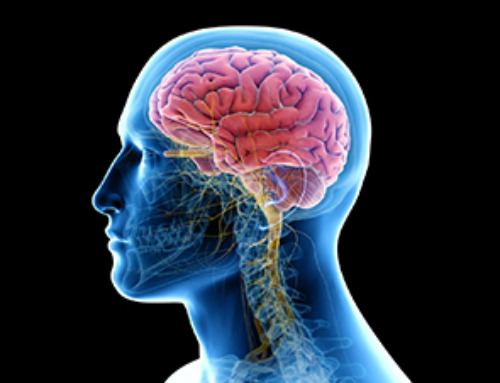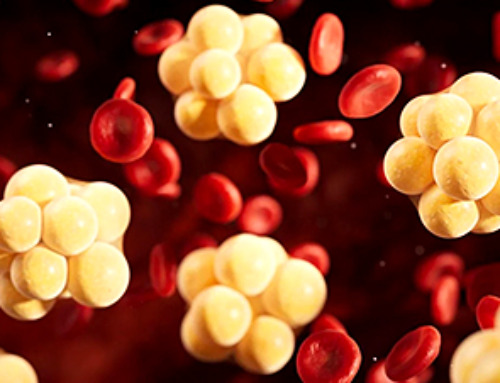For many of us, Covid-19 feels like a chapter we've closed – along with the days of PCR tests, mask mandates and daily case updates. But while life may feel back to normal, the virus hasn't completely vanished. In fact, new variants continue to quietly circulate.
One of the latest to appear on the radar is NB.1.8.1 – a name that you may have seen pop up in headlines and on social media feeds this week.
This newly emerging sub-variant hasn't triggered widespread concern, but it has caught the attention of scientists and health officials.
The UK Health Security Agency (UKHSA) announced this week that NB.1.8.1 has so far only been detected in small numbers within the UK, but added that international data indicates that the sub-variant is steadily accounting for a growing share of global Covid-19 cases.
We consulted some GPs to find out exactly what sets the NB.1.8.1 Covid variant apart from the rest. Is it more contagious, more immune-evasive, or simply another step in Covid's slow evolution? Here's what they know so far…
What is the new NB.1.8.1 Covid variant and where has it come from?
"The NB.1.8.1 variant, also referred to as Nimbus, is a new strain of the Covid-19 virus that has emerged due to mutations in its genetic material," says Dr Naveed Asif, GP at The London General Practice.
It's a sub-variant of Omicron, says Dr Chun Tang, GP at Pall Mall Medical.
"Variants like this pop up when the virus mutates, which is normal for viruses, especially ones that spread widely," explains Tang. "NB.1.8.1 was first picked up in early 2025 and has since been detected in several countries, including the UK, China and US. It's got some new mutations that scientists are keeping a close eye on."
How is it different from previous variants?
"NB.1.8.1 isn't too different from the Omicron variant, but it does have some tweaks to its spike protein, which might make it spread a bit more easily or slip past some of our existing immunity," says Tang. "That said, early signs suggest it doesn't seem to cause more serious illness, but of course, we're still learning more about it."
However, Nimbus does appear to be more transmissible than previous variants, with notable increases reported in India, Hong Kong, Singapore, and Thailand, notes Asif.
"Its spread has been identified in around 22 countries," says Asif. "The World Health Organization (WHO) assesses the additional risk to the global public as currently low, and existing Covid-19 vaccines are considered effective in preventing severe disease."
How is it spreading?
"It's spreading in the usual way, person to person, mainly through respiratory droplets when people cough, sneeze or even just talk closely," says Tang. "Like other variants, it can hang around in the air in poorly ventilated spaces."
What symptoms should people look out for?
"Common symptoms of the NB.1.8.1 variant include severe sore throat (described as a "razor blade sensation"), fatigue, mild cough, fever, muscle aches and congestion," says Asif. "However, symptoms can vary widely so vigilance is key."
What are the treatment options?
"Treatment for Nimbus generally aligns with that for other Covid-19 variants," says Asif. "Most individuals will recover at home with rest, hydration, and over-the-counter medications for symptom management.
"For those with severe symptoms or high-risk complications, antiviral medications or monoclonal antibody treatments may be recommended. Always consult your GP for personalised advice."
How can you avoid getting the new variant?
"Make sure everyone's up to date with their Covid-19 jabs, especially boosters," recommends Tang. "Wash your hands regularly, keep rooms well ventilated, and consider popping a mask on in busy places or if you're around people who are more vulnerable.
"If someone in the house is feeling poorly, try to keep some distance and clean shared surfaces regularly."
When should you see a GP about this?
"Seek medical advice if you experience Covid-19 symptoms, especially if they worsen or if you have underlying health conditions that increase your risk," advises Asif. "Additionally, consult your GP if you've been in close contact with someone who has tested positive for the NB.1.8.1 variant or if you have health concerns."
News
Smaller Than a Grain of Salt: Engineers Create the World’s Tiniest Wireless Brain Implant
A salt-grain-sized neural implant can record and transmit brain activity wirelessly for extended periods. Researchers at Cornell University, working with collaborators, have created an extremely small neural implant that can sit on a grain of [...]
Scientists Develop a New Way To See Inside the Human Body Using 3D Color Imaging
A newly developed imaging method blends ultrasound and photoacoustics to capture both tissue structure and blood-vessel function in 3D. By blending two powerful imaging methods, researchers from Caltech and USC have developed a new way to [...]
Brain waves could help paralyzed patients move again
People with spinal cord injuries often lose the ability to move their arms or legs. In many cases, the nerves in the limbs remain healthy, and the brain continues to function normally. The loss of [...]
Scientists Discover a New “Cleanup Hub” Inside the Human Brain
A newly identified lymphatic drainage pathway along the middle meningeal artery reveals how the human brain clears waste. How does the brain clear away waste? This task is handled by the brain’s lymphatic drainage [...]
New Drug Slashes Dangerous Blood Fats by Nearly 40% in First Human Trial
Scientists have found a way to fine-tune a central fat-control pathway in the liver, reducing harmful blood triglycerides while preserving beneficial cholesterol functions. When we eat, the body turns surplus calories into molecules called [...]
A Simple Brain Scan May Help Restore Movement After Paralysis
A brain cap and smart algorithms may one day help paralyzed patients turn thought into movement—no surgery required. People with spinal cord injuries often experience partial or complete loss of movement in their arms [...]
Plant Discovery Could Transform How Medicines Are Made
Scientists have uncovered an unexpected way plants make powerful chemicals, revealing hidden biological connections that could transform how medicines are discovered and produced. Plants produce protective chemicals called alkaloids as part of their natural [...]
Scientists Develop IV Therapy That Repairs the Brain After Stroke
New nanomaterial passes the blood-brain barrier to reduce damaging inflammation after the most common form of stroke. When someone experiences a stroke, doctors must quickly restore blood flow to the brain to prevent death. [...]
Analyzing Darwin’s specimens without opening 200-year-old jars
Scientists have successfully analyzed Charles Darwin's original specimens from his HMS Beagle voyage (1831 to 1836) to the Galapagos Islands. Remarkably, the specimens have been analyzed without opening their 200-year-old preservation jars. Examining 46 [...]
Scientists discover natural ‘brake’ that could stop harmful inflammation
Researchers at University College London (UCL) have uncovered a key mechanism that helps the body switch off inflammation—a breakthrough that could lead to new treatments for chronic diseases affecting millions worldwide. Inflammation is the [...]
A Forgotten Molecule Could Revive Failing Antifungal Drugs and Save Millions of Lives
Scientists have uncovered a way to make existing antifungal drugs work again against deadly, drug-resistant fungi. Fungal infections claim millions of lives worldwide each year, and current medical treatments are failing to keep pace. [...]
Scientists Trap Thyme’s Healing Power in Tiny Capsules
A new micro-encapsulation breakthrough could turn thyme’s powerful health benefits into safer, smarter nanodoses. Thyme extract is often praised for its wide range of health benefits, giving it a reputation as a natural medicinal [...]
Scientists Develop Spray-On Powder That Instantly Seals Life-Threatening Wounds
KAIST scientists have created a fast-acting, stable powder hemostat that stops bleeding in one second and could significantly improve survival in combat and emergency medicine. Severe blood loss remains the primary cause of death from [...]
Oceans Are Struggling To Absorb Carbon As Microplastics Flood Their Waters
New research points to an unexpected way plastic pollution may be influencing Earth’s climate system. A recent study suggests that microscopic plastic pollution is reducing the ocean’s capacity to take in carbon dioxide, a [...]
Molecular Manufacturing: The Future of Nanomedicine – New book from Frank Boehm
This book explores the revolutionary potential of atomically precise manufacturing technologies to transform global healthcare, as well as practically every other sector across society. This forward-thinking volume examines how envisaged Factory@Home systems might enable the cost-effective [...]
New Book! NanoMedical Brain/Cloud Interface – Explorations and Implications
New book from Frank Boehm, NanoappsMedical Inc Founder: This book explores the future hypothetical possibility that the cerebral cortex of the human brain might be seamlessly, safely, and securely connected with the Cloud via [...]





















